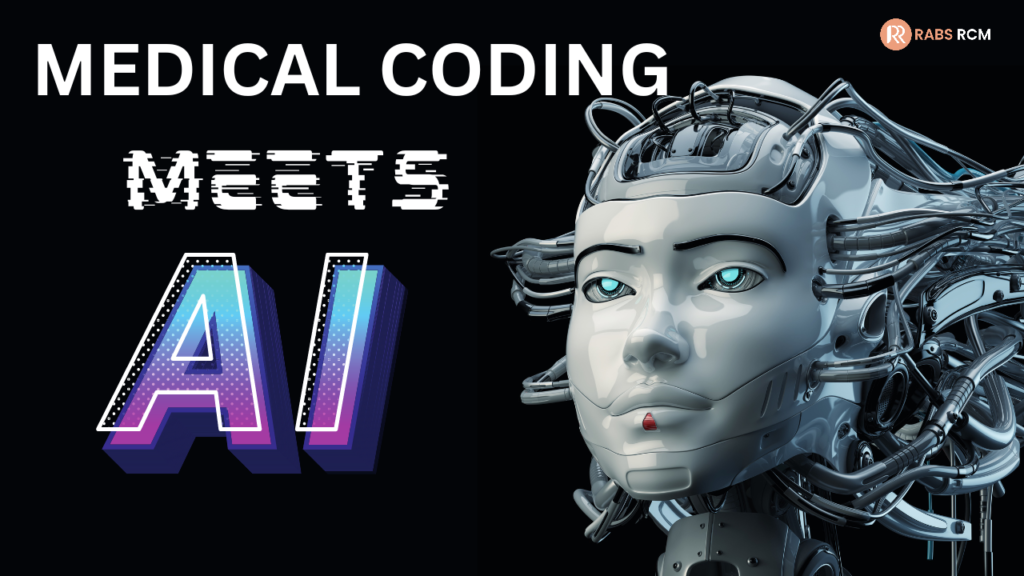
Future Trends: How AI is Shaping the Future of Medical Coding
The field of medicine is one of those that keeps on evolving with time. As all spheres of our lives are experiencing the impact of technological advancements regarding AI on our lives, health remains one such sector that is yet to feel the worthwhile effects of AI. However, the latest advances have shown that AI threatens various jobs in the healthcare industry. Its accuracy can be argued upon, but its effectiveness is something that stands out. In the shadows of uncertainty, let us discuss some of the positive impacts of AI on the health sector via its effects on Medical Coding.
The Importance of Accurate Medical Coding
Before delving into the influence of AI, it’s crucial to understand the significance of accurate medical coding. Proper coding is essential for billing, insurance claims, and maintaining patient records in the medical sector. However, traditional coding methods are prone to errors, which can cause claim denials and revenue loss. According to a 2021 survey, over a third of hospital executives reported nearly 10% claim denial rates due to coding errors.
Embracing AI to Address Challenges
1. Optimizing Medical Coding Efficiency
Medical coding inefficiencies can disrupt the revenue cycle of healthcare organizations. High claim denial rates are often the result of incorrect coding or modifier usage. To mitigate this, AI can play a pivotal role in identifying appropriate codes for clinical encounters while adhering to payer requirements. This ensures that healthcare providers receive timely reimbursement and keep money on the table.
2. Complementing Human Expertise
While AI has the potential to accelerate billing processes and enhance coding efficiency, it is likely to replace human coders partially. The key to the future of medical coding lies in the synergy between AI and human expertise. AI can assist billing and coding teams in identifying patterns, evaluating errors, and reducing the risk of billing fraud and code duplication.
Advantages of AI in Medical Coding
1. Adapting to Code Complexity
The medical coding industry is constantly making advancements, frequently updating coding standards. For example, the transition from ICD-10 to ICD-11 introduced a significant increase in the number of codes and diagnosis standards. AI-based coding systems can efficiently handle this complexity, providing real-time feedback to improve coding accuracy.
2. Enhancing Coding Practices
Traditional paper-based coding processes are time-consuming and prone to errors. AI-driven solutions, such as Computer Assisted Coding (CAC) systems, streamline coding by contextualizing unstructured data, aligning information from various sources, and arranging it logically. Web-based systems and machine learning-enabled procedures offer automated data extraction, making coding more efficient and accurate.
3. Revolutionizing Imaging and Disease Management
AI is revolutionizing diagnostic imaging by improving productivity, accuracy, and treatment personalization. Radiology departments can handle more diagnostic procedures with AI’s assistance, even in areas with a shortage of radiologists. Cloud computing and deep-learning technology are accelerating the development of AI-driven medical image analysis tools, making diagnostic imaging more efficient.
4. Streamlining Workflow
Integrating AI into medical coding enables more accurate and efficient data processing. AI algorithms swiftly analyze and extract relevant data from electronic medical records (EMRs), providing valuable insights for decision-making. Patients can actively participate in their healthcare journey with this enhanced approach.
5. Ensuring Efficient Workforce Training
Collaboration between human coders and AI is essential for efficient medical coding. AI systems learn from coder interactions, optimizing processes and reducing errors. As coding complexity increases, on-the-job training becomes crucial for coders to stay updated with industry trends, ensuring better patient care and organizational success.
In conclusion, AI is not here to replace healthcare professionals but to empower them. Embracing AI in medical coding can lead to more accurate coding, streamlined processes, and improved patient care. As the healthcare industry continues to make advancements, AI will play a crucial role in shaping the future of medical coding.
Read More: Maximizing Revenue with Payment Posting Services: A Guide for Medical Billing Professionals

